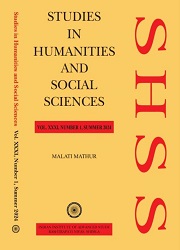Examining the Role of Indigenous Governance Systems in Upholding Universal Human Values in Mising Society with Special Reference to Dolung Kébang
Keywords:
Dolung Kébang’,, Mising,, Universal Human Value,, Social Justice,Abstract
The Mising community of Assam, an indigenous tribe of Mongoloid origin, exemplifies universal human values such as cultural integrity, social justice, equality, and communal harmony through their rich traditions, socio-political systems, and governance structures. Rooted in an agrarian lifestyle centered around Assam’s major rivers, the Misings maintain a deep connection to the environment, reflected in their traditional farming practices and animistic belief system that reveres natural elements like the Sun and Moon. Their vibrant festivals, such as Ali Aye Ligang and Po:rag, and musical heritage, including Nitom songs, further highlight their spiritual and cultural identity. At the heart of Mising society is the Dolung Kébang, a local governing body present in every village, which addresses social, cultural, political, and economic challenges. By fostering democratic deliberation, impartial justice, and reconciliation, the Dolung Kébang ensures social harmony and equality. Alongside this, the Murong, a cultural hub, and the Mímbír Ya:me, a youth organization promoting cooperative labor and mutual support, collectively reinforce the community’s principles of inclusivity, egalitarianism, and interdependence. Despite challenges like annual floods, land erosion, and socio-economic decline, the Misings have demonstrated remarkable resilience through adaptive practices and the establishment of the Mising Autonomous Council. Their traditional systems not only preserve their cultural heritage but also serve as a model for fostering justice and equity. By studying the Dolung Kébang and other socio-political institutions, this research underscores how indigenous governance systems embody universal values, offering lessons in sustainable and inclusive social organization. The Misings’ example stands as a testament to the enduring strength and relevance of indigenous communities in promoting collective harmony and justice.



